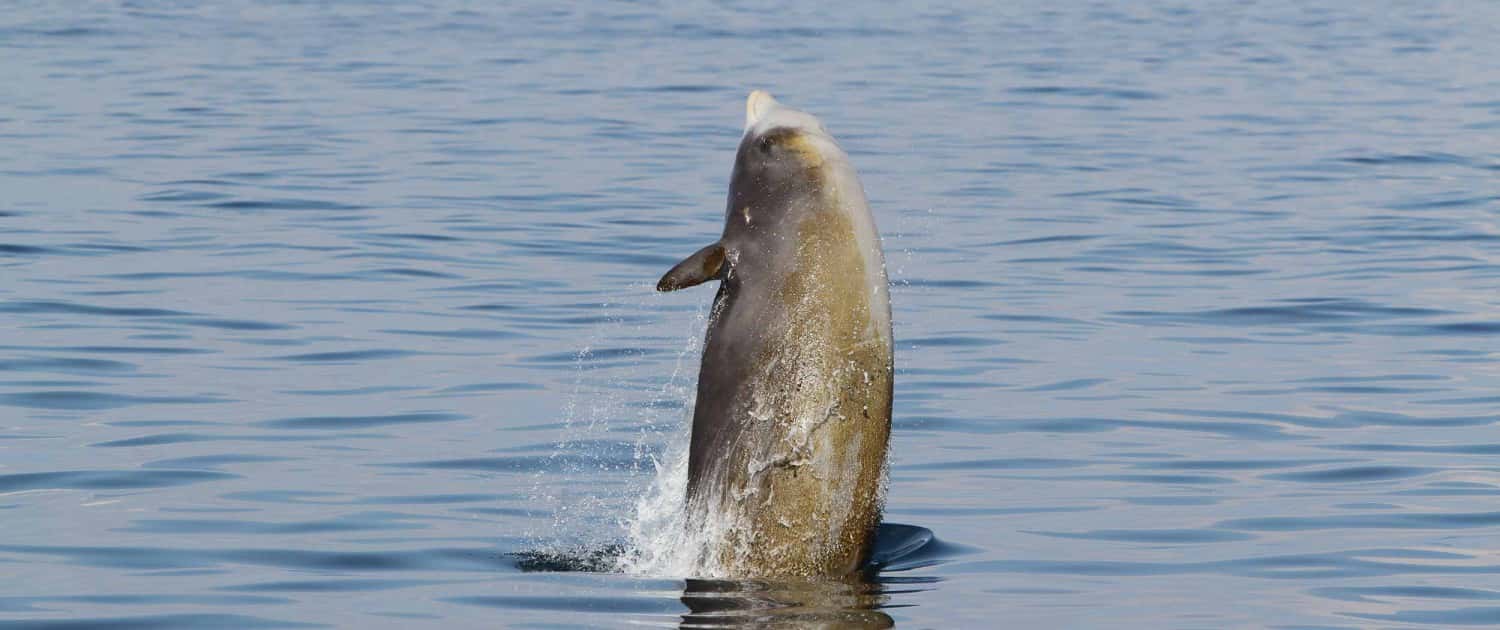Cuvier’s beaked whales had always been the least known cetacean in the Mediterranean, due to their rarity compared to the other species, to the length of their dives, and to their shy, secretive surface behaviour. This situation has changed in the past decade, in part also due to Tethys’ research in the Pelagos Sanctuary. Starting in 1999, dedicated research focused on the following aspects of Cuvier’s beaked whale ecology:
- a study of the presence and trends in abundance of Cuvier’s beaked whales, as well as sperm whales and Risso’s dolphins, in selected portions (inner and upper continental slope) of the Pelagos Sanctuary, between 1996 and 2000. The research, based on measures of relative abundance, indicated that Risso’s dolphins were found strongly associated to well defined depth and slope gradient characteristics of the shelf-edge and the upper and lower slope. Analyses using depth and slope as predictors outlined clear and not overlapping habitat preferences for Risso’s dolphin and Cuvier’s beaked whale, whereas a partial overlapping of the habitat of the other two species was observed for sperm whale (Azzellino et al. 2008);
- studies based on photo-ID data indicated the existence of a resident population of about 100 individuals in the Genoa canyon region.
Literature
Azzellino A., Gaspari S., Airoldi S., Nani B. 2008. Habitat use and preferences of cetaceans along the continental slope and the adjacent pelagic waters in the western Ligurian Sea. Deep Sea Research Part I. 55:296-323. doi:10.1016/j.dsr.2007.11.006


